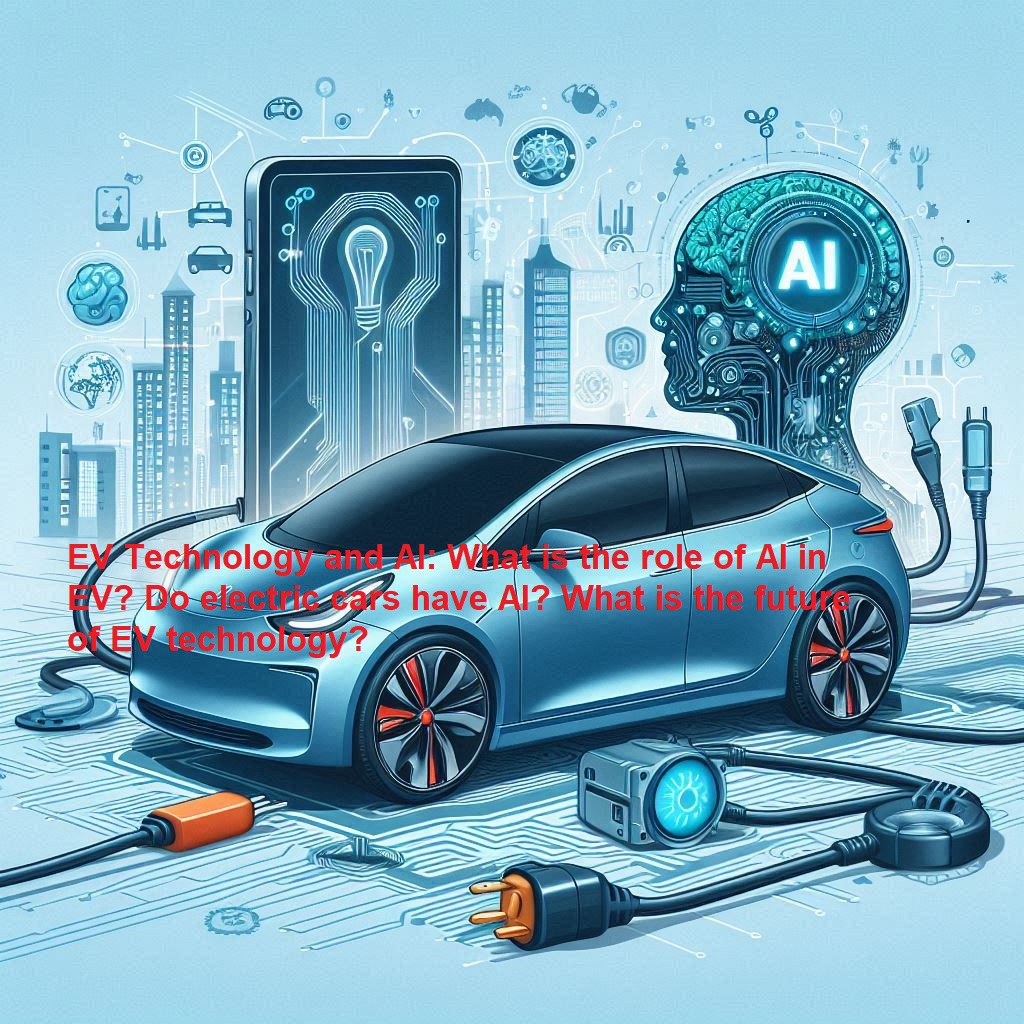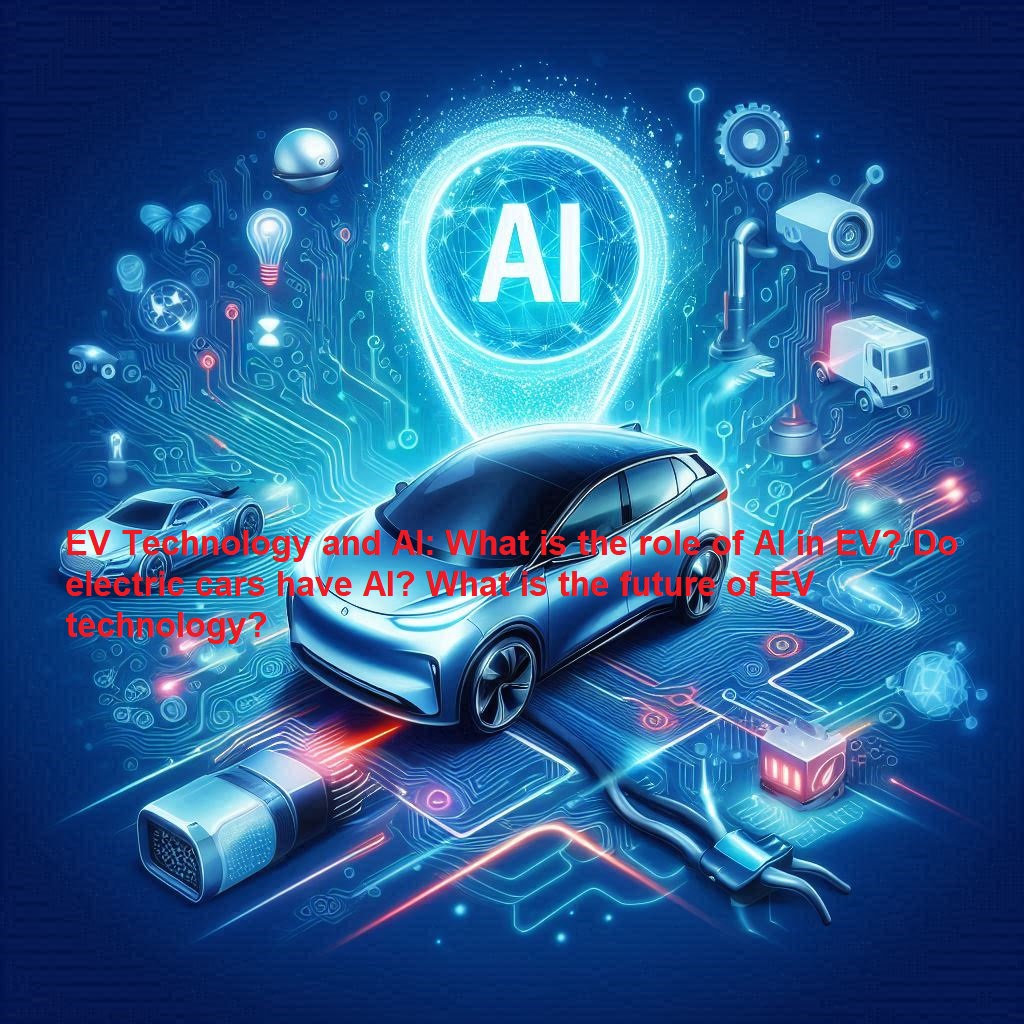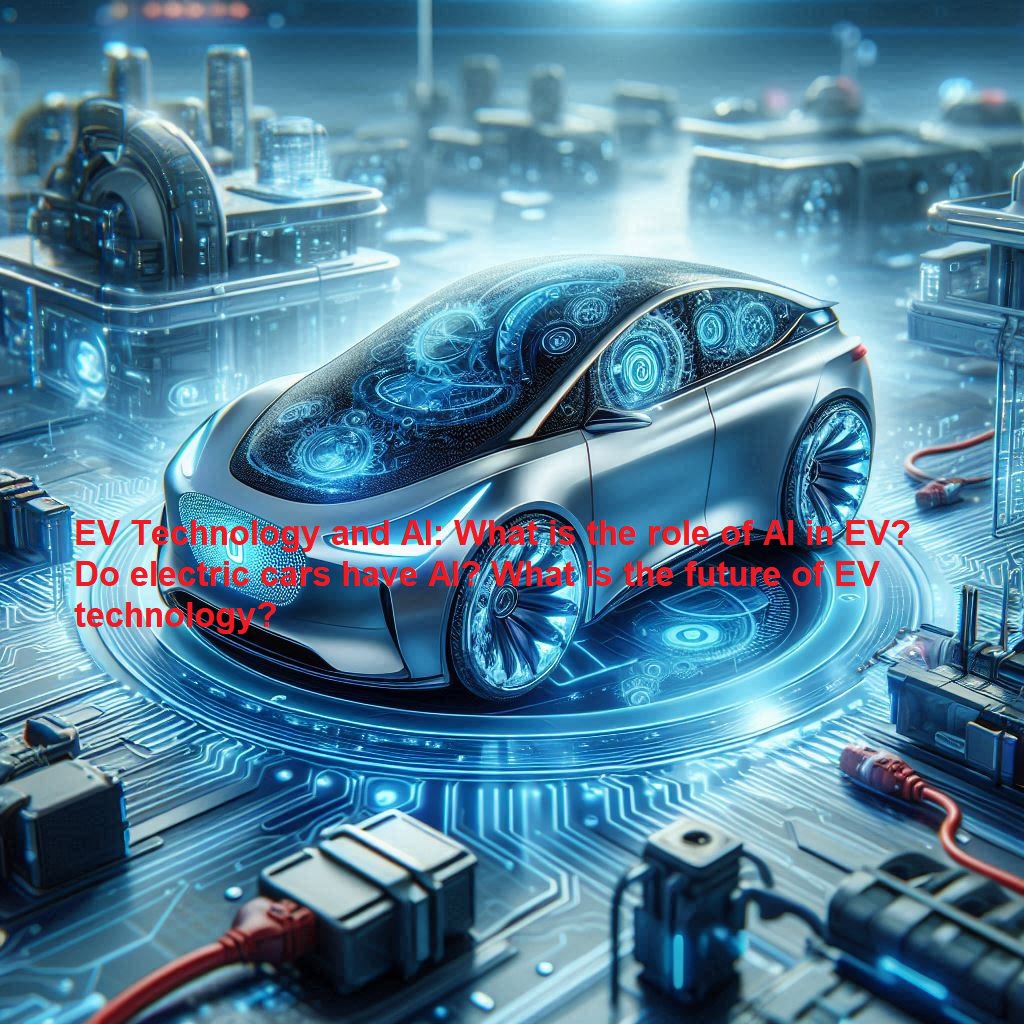EV Technology and AI: What is the role of AI in EV? Do electric cars have AI? What is the future of EV technology?
Electric Vehicles (EVs) are gaining popularity globally as a sustainable alternative to traditional fossil-fuel-powered vehicles. AI plays a significant role in EVs, from enhancing their efficiency to optimizing their performance. Here’s a brief overview of the role of AI in EVs:
- Battery Management Systems (BMS): AI algorithms are used in BMS to monitor and optimize battery performance, health, and lifespan. AI can analyze data to provide insights into battery usage patterns and offer recommendations to enhance battery life.
- Autonomous Driving: Self-driving cars heavily rely on AI and machine learning technologies. AI enables these vehicles to process vast amounts of data from sensors and cameras, helping them make real-time decisions.
- Predictive Maintenance: AI can monitor various vehicle components and detect potential issues before they become critical, reducing unexpected breakdowns and maintenance costs.
- Smart Charging: AI can optimize charging schedules, recommend the best charging stations, and manage power distribution to minimize charging times and costs.
Now, let’s address your other questions:
Do electric cars have AI?
Yes, electric cars often incorporate AI technologies to optimize their performance, improve safety, and offer innovative features. Some examples of AI-powered features include advanced driver assistance systems (ADAS), self-parking capabilities, and adaptive cruise control.
What is the future of EV technology?
The future of EV technology is promising, with continued advancements in battery technology, charging infrastructure, and autonomous driving. Some key trends include:
- Improved battery range and faster charging times.
- Expansion of charging networks and wireless charging technologies.
- Integration of Vehicle-to-Grid (V2G) and Vehicle-to-Home (V2H) capabilities, enabling EVs to serve as energy storage units and provide power back to the grid or homes.
- Increased adoption of autonomous driving technologies, enhancing safety and convenience.
Overall, the convergence of AI and EVs is transforming the automotive industry and contributing to a more sustainable future.
AI plays a significant role in electric vehicles (EVs) across various aspects of their design, development, and operation. Here’s how AI contributes to EV technology:
- Battery Management: AI algorithms are used to optimize battery performance, lifespan, and charging cycles. These algorithms analyze data from sensors to predict battery health, manage charging rates, and ensure efficient energy usage.
- Autonomous Driving: While not exclusive to EVs, autonomous driving technology often incorporates AI. Electric vehicles can utilize AI-driven systems for features like adaptive cruise control, lane-keeping assistance, and autonomous parking, enhancing safety and convenience.
- Range Prediction and Optimization: AI algorithms analyze driving patterns, traffic conditions, and environmental factors to predict the range of an EV accurately. This information helps drivers plan their routes and optimize energy usage to maximize range.
- Energy Efficiency: AI is employed to optimize the efficiency of electric drivetrains, regenerative braking systems, and other components. Machine learning algorithms can adaptively adjust power delivery and energy usage based on driving conditions to improve overall efficiency.
- Vehicle-to-Grid (V2G) Integration: AI plays a crucial role in V2G systems, which enable bidirectional energy flow between EVs and the grid. AI algorithms manage charging and discharging cycles, balancing energy supply and demand while optimizing costs for EV owners and grid operators.
- User Experience: AI-powered infotainment systems, voice assistants, and predictive maintenance features enhance the user experience in electric vehicles. These systems learn from user preferences and behavior to provide personalized recommendations and optimize vehicle performance.
Yes, many electric cars are equipped with AI-driven systems to enhance performance, efficiency, and user experience. These systems include onboard computers, sensors, and software that continuously analyze data and make real-time adjustments to various vehicle functions.
The future of EV technology is promising, with ongoing advancements in AI, battery technology, charging infrastructure, and renewable energy sources. Here are some key trends and developments to expect:
- Increased Range and Performance: Advances in battery technology will lead to electric vehicles with longer ranges and faster charging times, making EVs more practical and appealing to a broader range of consumers.
- Autonomous Driving: Autonomous driving capabilities will continue to improve, enabling safer and more efficient transportation. Electric vehicles are well-suited for autonomous technology due to their lower maintenance requirements and simpler drivetrains.
- Charging Infrastructure Expansion: The deployment of fast-charging stations will accelerate, addressing range anxiety and facilitating long-distance travel with electric vehicles. Additionally, innovations in wireless charging technology may further simplify the charging process for EV owners.
- Integration with Renewable Energy: Electric vehicles will increasingly be charged using renewable energy sources such as solar and wind power, reducing greenhouse gas emissions associated with transportation.
- Smart Grid Integration: EVs will play a more significant role in balancing the electrical grid through V2G technology, enabling dynamic energy management and supporting the integration of intermittent renewable energy sources.
Overall, the future of EV technology is characterized by greater efficiency, convenience, and sustainability, driven by advancements in AI, battery technology, and infrastructure development.
Artificial intelligence (AI) is playing an increasingly important role in electric vehicles (EVs), transforming them from a new mode of transportation to a more intelligent and efficient one. Here’s how AI is making a difference:
Optimizing EV Performance:
- Predictive Maintenance: By analyzing data from sensors and diagnostics, AI can predict when components like batteries or motors might fail. This allows for proactive maintenance, preventing breakdowns and extending the lifespan of the EV.
- Energy Management: AI systems can analyze driving patterns, traffic conditions, weather, and terrain to optimize battery usage. This ensures efficient energy consumption, maximizing range and performance while minimizing energy waste.
Enhancing the EV Experience:
- Advanced Driver-Assistance Systems (ADAS): AI is behind many ADAS features in EVs, like adaptive cruise control, lane-keeping assist, and automatic emergency braking. These features contribute to a safer and more comfortable driving experience.
- Navigation and Charging: AI can help plan routes that factor in charging stops, considering factors like traffic, weather, and battery range. This reduces range anxiety and makes long journeys more convenient.
- Personalized User Experience: AI can personalize cabin settings and features based on driver preferences. Imagine an EV that automatically adjusts the temperature or infotainment system based on your habits.
The Future of EV Technology:
The future of EV technology is heavily intertwined with AI. We can expect to see:
- More Autonomous Driving: AI is crucial for developing fully autonomous vehicles. As AI continues to evolve, self-driving EVs may become a reality, revolutionizing transportation.
- Smarter Charging Infrastructure: AI can optimize charging station usage, reducing wait times and ensuring efficient energy distribution across the grid.
- Battery Breakthroughs: AI can aid in material science research, accelerating the development of more efficient, longer-range, and faster-charging batteries.
Overall, AI is transforming EVs into smarter, more sustainable, and user-friendly vehicles. With continued advancements in AI, the future of electric transportation looks bright.





You must be logged in to post a comment.